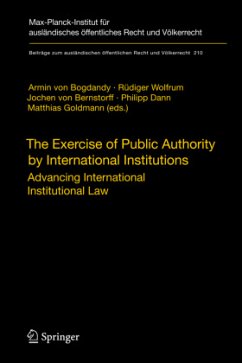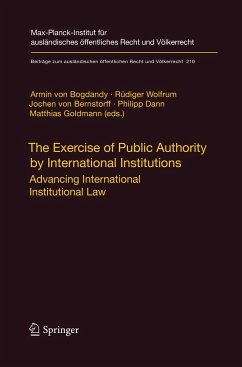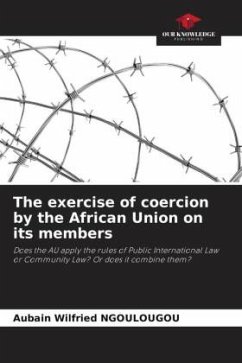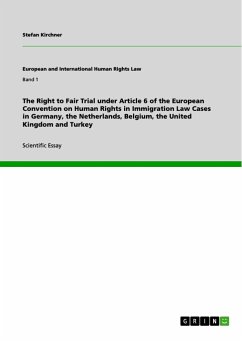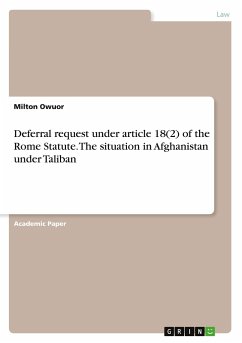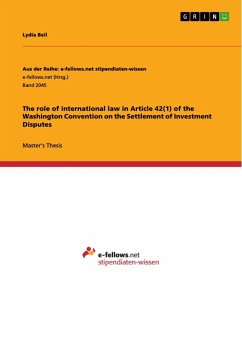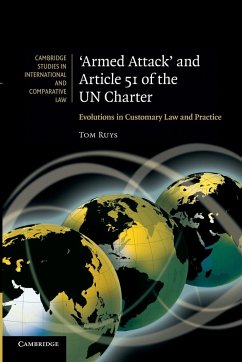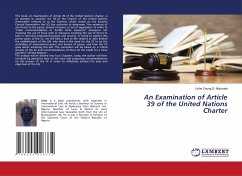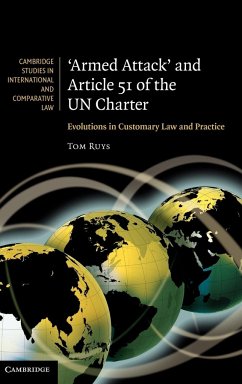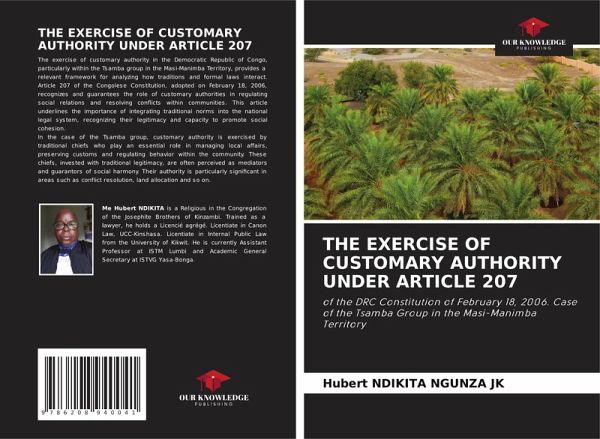
THE EXERCISE OF CUSTOMARY AUTHORITY UNDER ARTICLE 207
of the DRC Constitution of February 18, 2006. Case of the Tsamba Group in the Masi-Manimba Territory
Versandkostenfrei!
Versandfertig in 6-10 Tagen
29,99 €
inkl. MwSt.

PAYBACK Punkte
15 °P sammeln!
The exercise of customary authority in the Democratic Republic of Congo, particularly within the Tsamba group in the Masi-Manimba Territory, provides a relevant framework for analyzing how traditions and formal laws interact. Article 207 of the Congolese Constitution, adopted on February 18, 2006, recognizes and guarantees the role of customary authorities in regulating social relations and resolving conflicts within communities. This article underlines the importance of integrating traditional norms into the national legal system, recognizing their legitimacy and capacity to promote social co...
The exercise of customary authority in the Democratic Republic of Congo, particularly within the Tsamba group in the Masi-Manimba Territory, provides a relevant framework for analyzing how traditions and formal laws interact. Article 207 of the Congolese Constitution, adopted on February 18, 2006, recognizes and guarantees the role of customary authorities in regulating social relations and resolving conflicts within communities. This article underlines the importance of integrating traditional norms into the national legal system, recognizing their legitimacy and capacity to promote social cohesion.In the case of the Tsamba group, customary authority is exercised by traditional chiefs who play an essential role in managing local affairs, preserving customs and regulating behavior within the community. These chiefs, invested with traditional legitimacy, are often perceived as mediators and guarantors of social harmony. Their authority is particularly significant in areas such as conflict resolution, land allocation and so on.



